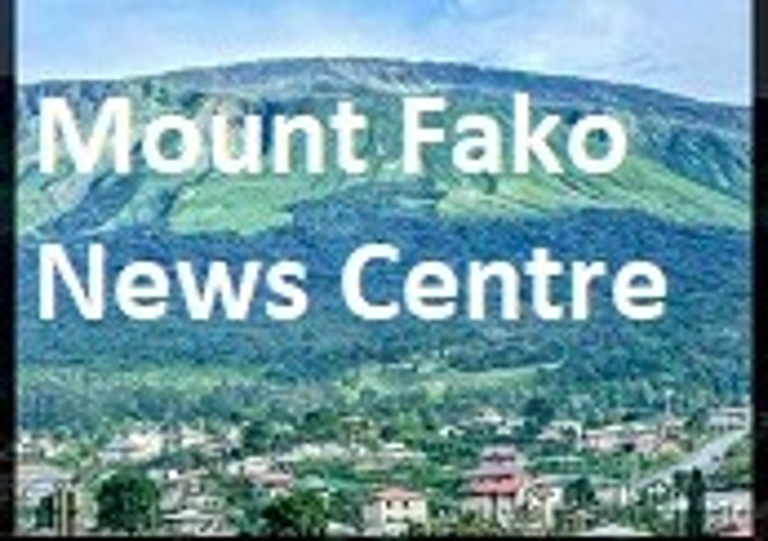One of Wales' News Agencies, NATION.CYMRU, REPORTS ON THE VISIT OFDR ROBERT ESUKA ENDELEY, PARAMOUNT CHIEF OF BUEA.
This weekend will see Cameroonian-born, Cardiff-based writer Eric Ngalle Charles under the spotlight, as he’s been commissioned to write and present a poem to the Paramount Ruler of Buea, the capital city of the southwest region of Cameroon.
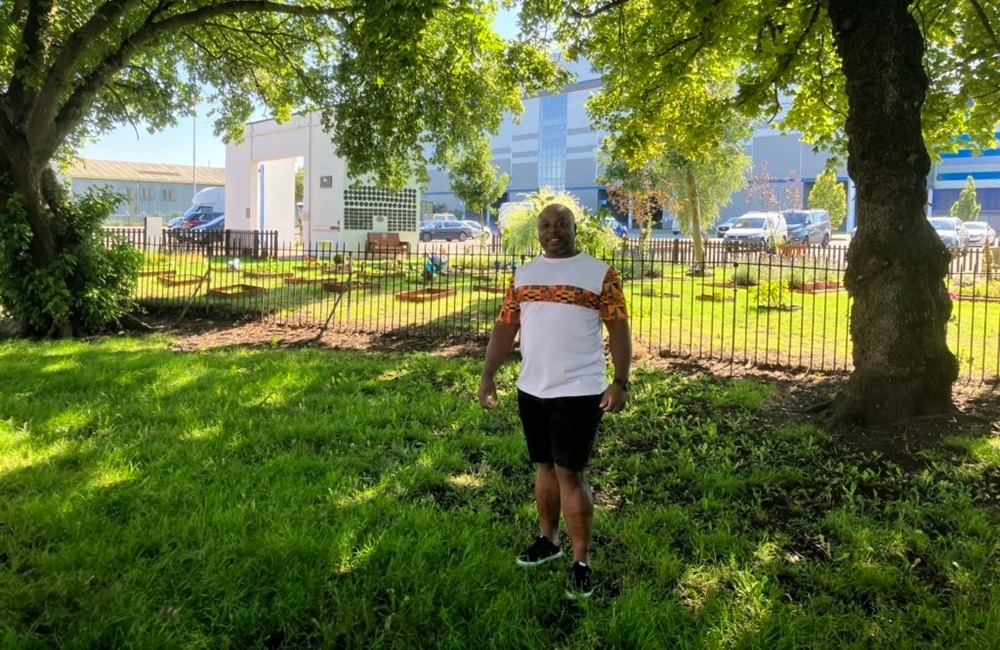

CULLED FROM NATION.CYMRU
Presenting poetry to the King
17 Aug 2024, 4 minute read
This weekend will see Cameroonian-born, Cardiff-based writer Eric Ngalle Charles under the spotlight, as he’s been commissioned to write and present a poem to the Paramount Ruler of Buea, the capital city of the southwest region of Cameroon.
It will be performed during a cultural evening in Leicester in the presence of the Cameroonian ambassador, in an event both celebrating and building bridges between the cultures of Cameroon and the UK and Wales in particular, from Eric’s point of view.
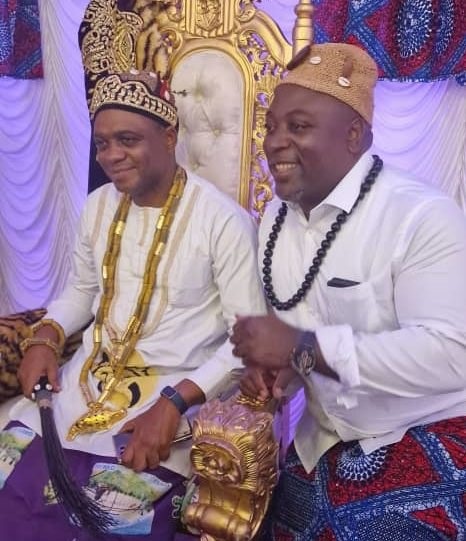

First visit
In the run-up to what will be a first-time visit to the UK by the Paramount Ruler of Buea, arranged by the Bakweri Community of the United Kingdom, Ant Evans discussed the impending visi with Eric Charlest. The poet, playwright and performer was eager to underline the significance of the visit by The Paramount ruler of Buea HRM Chief Dr Robert Esuka Endeley.
‘This is the first time that the King has visited the UK and also the first time the Bakweri diaspora have played host to such a VIP. Robert’s great great great grandfather, Kuve Likenye, defeated the Germans in battle in 1891.’
Eric Ngalle Charles himself is a Cameroonian writer, poet, playwright, and human rights activist based in Wales. Currently a PhD researcher at King’s College London, he was awarded a Creative Wales Award Fellowship in 2017 for his work on migration, trauma, and memory.
I, Eric Ngalle: One man’s journey crossing continents from Africa to Europe is published by Parthian.
In his autobiography I, Eric Ngalle: One Man’s Journey Crossing Continents from Africa to Europe (2019, Parthian Books), he recounts his journey to Europe, and eventually to Wales, spending several years in Russia and elsewhere seeking refuge. He was selected as one of Jackie Kay’s ‘best British BAME writers’ with a unique theatrical voice.
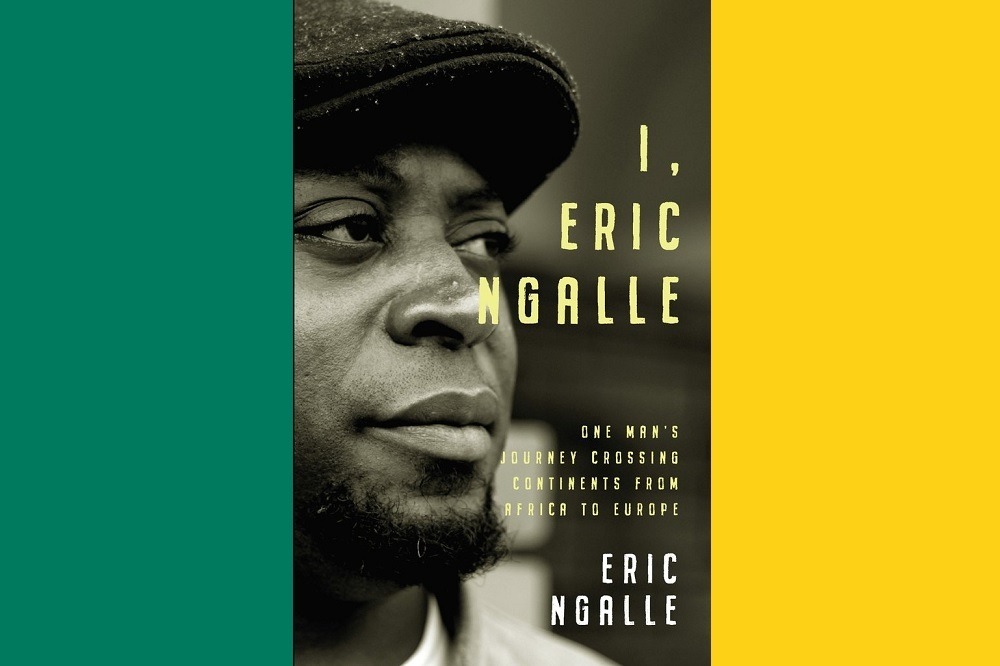

So what will you be doing on the night?
‘There are 3 MCs including myself. I’ve been commissioned to write and present a piece, a poem specifically, for the chief and the Bakweri diaspora and the Cameroonian ambassador His Excellency Albert Fotabong.’
How important is this visit to you personally?
‘It’s a wonderful, wonderful, wonderful opportunity to present my work to the king. But also, as I’m more widely known outside of Cameroon, an opportunity to be introduced to Cameroonian audiences and to show them the opportunities this wonderful country has offered me. The fact they picked me is a privilege. My job is to be a bridge builder when others try to burn them.’
How many people from Cameroon live in Wales?
‘There is a substantial community in Wales, located in Cardiff, Swansea, Aberystwyth, Bangor. One of those travelling with me tomorrow was voted by the Guardian as one of the UK’s best mathematicians. Elive Francis Gobina teaches in Fitzalan High School in Cardiff.’
A night to remember
How does the Cameroonian community here in Wales stay connected to one another?
‘There’s a Cameroonian Women’s Association. Also, there’s Le Mandela Restaurant, Penarth Road in Grangetown in Cardiff. Just go on a Friday or Saturday. Chances are someone will turn up if you’re looking for a Cameroonian.’
Eric Ngalle Charles is the editor of Hiraeth Erzolirzoli: A Wales-Cameroon Anthology (2018) and is the author of The 3 Molas (2020, Hafan Books). His poetry Collection Homelands (Seren Books) was published in 2022.
You can read Eric’s Letter from Leckwith, written for Nation.Cymru here.
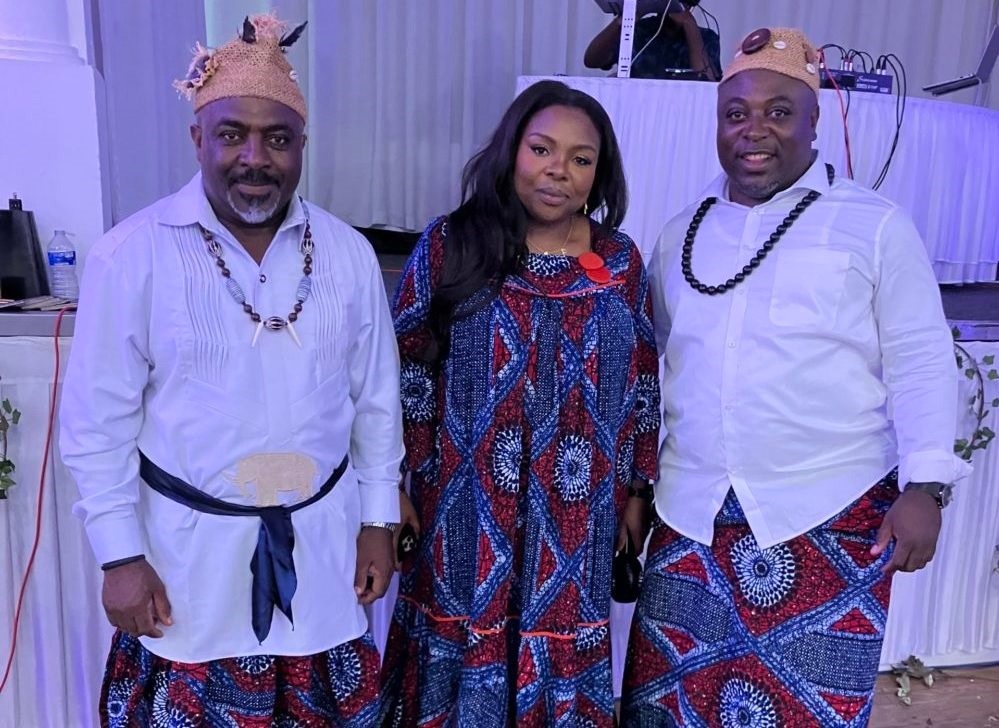

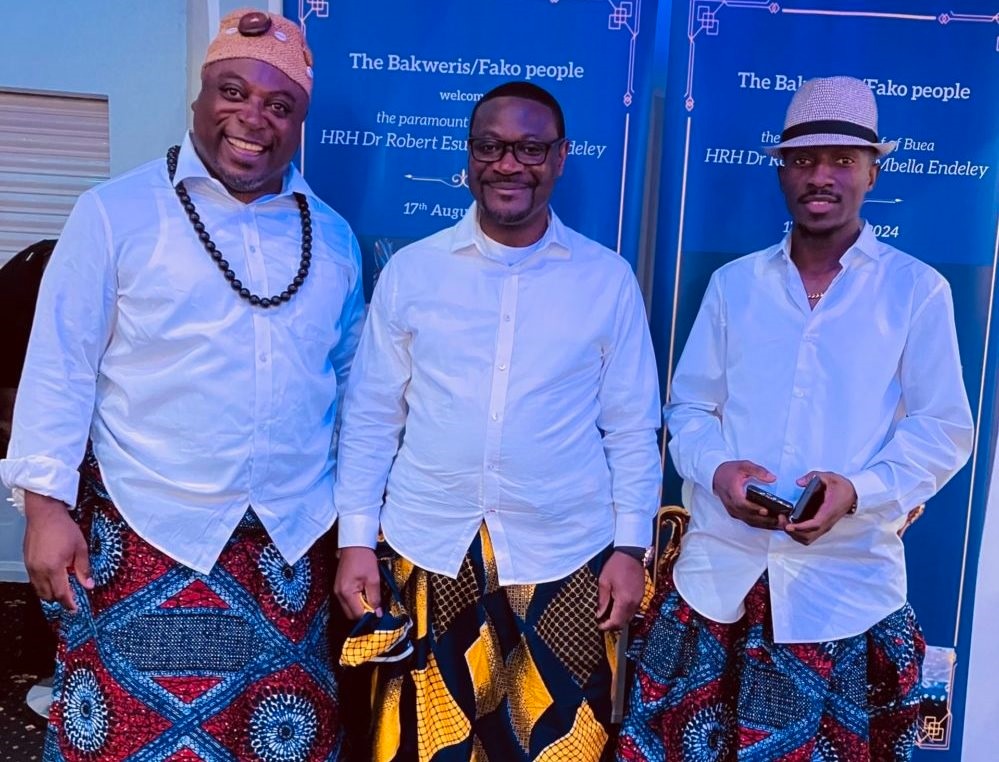

POEM BY ERIC NGALLE CHARLES DURING THE VISIT OF THE PARAMOUNT RULER OF BUEA TO THE UK
HRH Dr Robert Esuka Mbella Endeley
Matole Mondene mondi ma Ngweya izrozranyame Misroh ma Temeh owelima.
We remember:
Our ancestors sat on benches, at market gates, and on street corners, gazing at the sun.
We painted our faces white, black, and red. Some wore feathers, and others tied dried plantain leaves on their waists, dangling and swaying with the winds blowing from Weli. Little dust Welimos, camouflaged like Mbaki, rose, and returned with a basket filled with Ndah, Meko, Yellow yams, tondos, and Mbia—celebrating. Mbamba embraces their firstborn and holds an old bush lamp. Hveku Mologa, yes, she was full of beauty, and Elange, ambling in elegance…. Her voice, Monyingirzene, shaking, quaking, belching Tonde, flooding down Hvako, Mondindi, guttural rumbling, Naliomo, this is us. Can you hear? When tired, she sits on a flat stone and lifts her head like a lizard waiting for sunshine, calling the names of her Membamba—those alive and those long gone, Nanu ndi e maweh. Like a Kwai, she rises, humming like a humpback Whale, Omawe Mbundi Wakeh, mina ma woo. We remember.
Zri mo awahmah imba na kuleh nezreh, nazriwa ndo Maluwa.
We remember.
Mola, Mola, Mola Mbua Ndoko na Meyanna meh Mopkwe, amojohweli, ama, he saw Liengu La Mwanja, on a broomstick, Mbeveni propelling her across Hvako, crisscrossing the seas and the southern plateaus, longing for those she loved, now gone, knowing she would never see them again. Naliomo, weh jehli weh bwamu.
Wato wa Hvako, Izrilanyame was late, but the gods were there, and they left behind palm tree tappers, flute players, Maboka and Chacha dancers. We saw it: cities with… flowery path……….and the lines on our hands and faces stop and start’’’’’….in it are written slogans for our future, new pillars, hunting the mud houses of our village. Naliomo, these new roads are paved with hibiscus flowers, with Ezruli sucking nectars. They were calling us by our names. Ngalle, Mbacko, Ekema, Lyonga, Endeley, Liteke, Kuve, our houses were built with thatch and softwood.
We remember.
Mondowa Moliki, Teke Iwoma, Mola Maimbe, hunters with Mokoti mo Bgwa’s. Stained shirts, returning from hunting with Nyuwe, Ekulekule, Mbai, and we followed them, regaling us with stories. If only we knew that the story of a hunt always glorifies the hunter. Naliomo, we are witnesses to the trees they planted, so one day, we would sit under their canopies and scratch our backs like Mboli, regurgitate, and use their planks as Ewongo, for indeed, we deserve the reward of age.
Zri mo awoma imba na kuleh nezre, nazriwa ndo Maluwa.
Jaii, ozra vite li zriwa.
It is a new dawn. You are writing our history in the palm of your hands, in the stone crab's claws, on the whiskers of Njoh and Njila, and on the path carved by Liangamene as she thunders down Hvako. Our ancestors did not ask to wrestle the Njoku. They knew it would not end well.
Naliomo, we will swim against the tides, harvesting fiery honey as climbers make their way up. We will call on kwai with grey feathers, a bird of love, flying through the savannah with golden trees to gather where our poets, griots, and dancers meet.
On the face of it, let the Molikiliki push the tree until it falls; indeed, it takes a brass neck to rock up on somebody’s country, plant your flag, and call them strangers. Ngoele will summon its friends and nature recyclers, and the land will blossom again. In the cafés and taverns of Hvako, following your tail to Leicester City, we say, Weejeehli weh bwamu. We swam, and we reached the shores. It is Esonjo Mekoko, and the planting season is over.
Let him rest on your veranda between the sparkling path on the mountain at night and smoke rising at dawn from fiery logs. Tell you a story. A Kinge carried a basket of pollen, and winds from the dept of the forest met him, sprinkling. Eijajandoko (Sleep that peepers the eyes of a child) plagued him. Opening his eyes, he is greeted by giants prostrating: Croeso, our Kinge.
Written by Eric Ngalle Charles in collaboration with
Iya Susana Ewune Tama Eteki and the
Cultural Committee, UK, 2024
